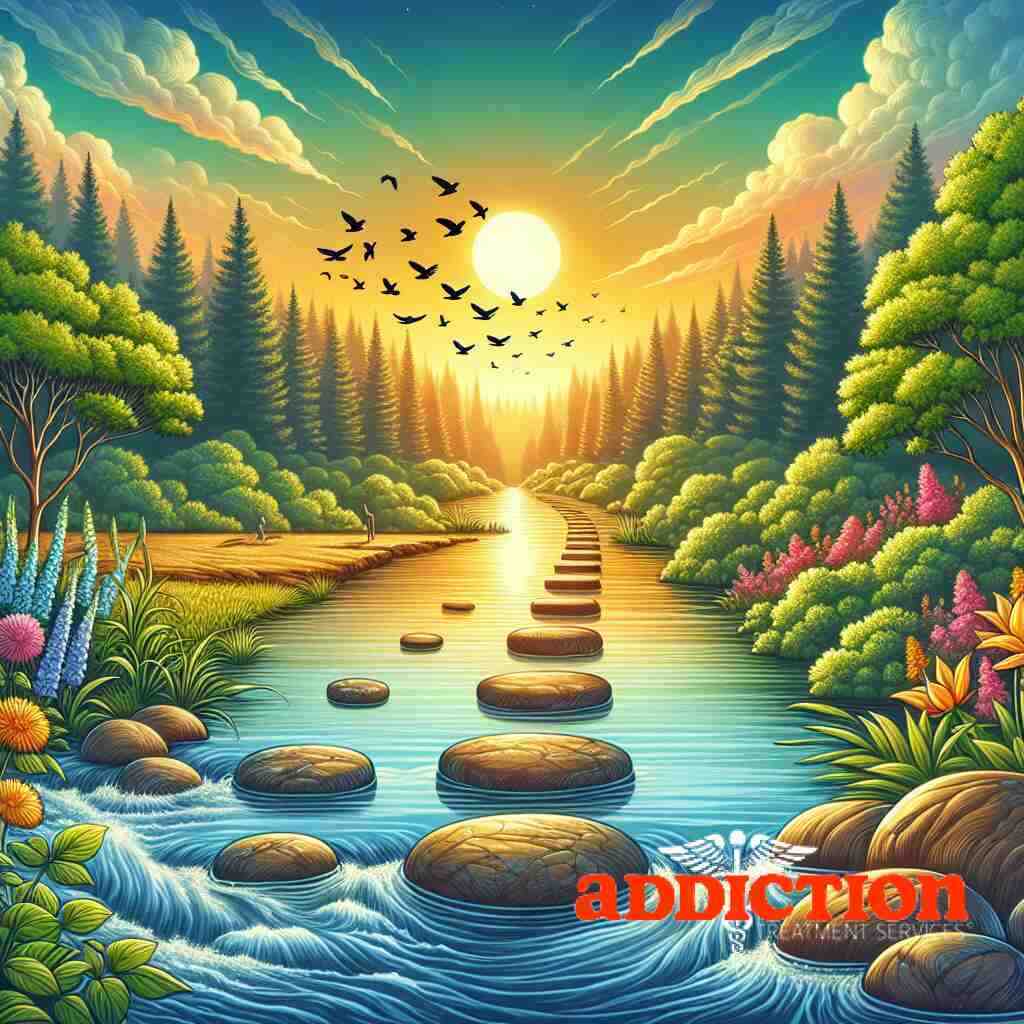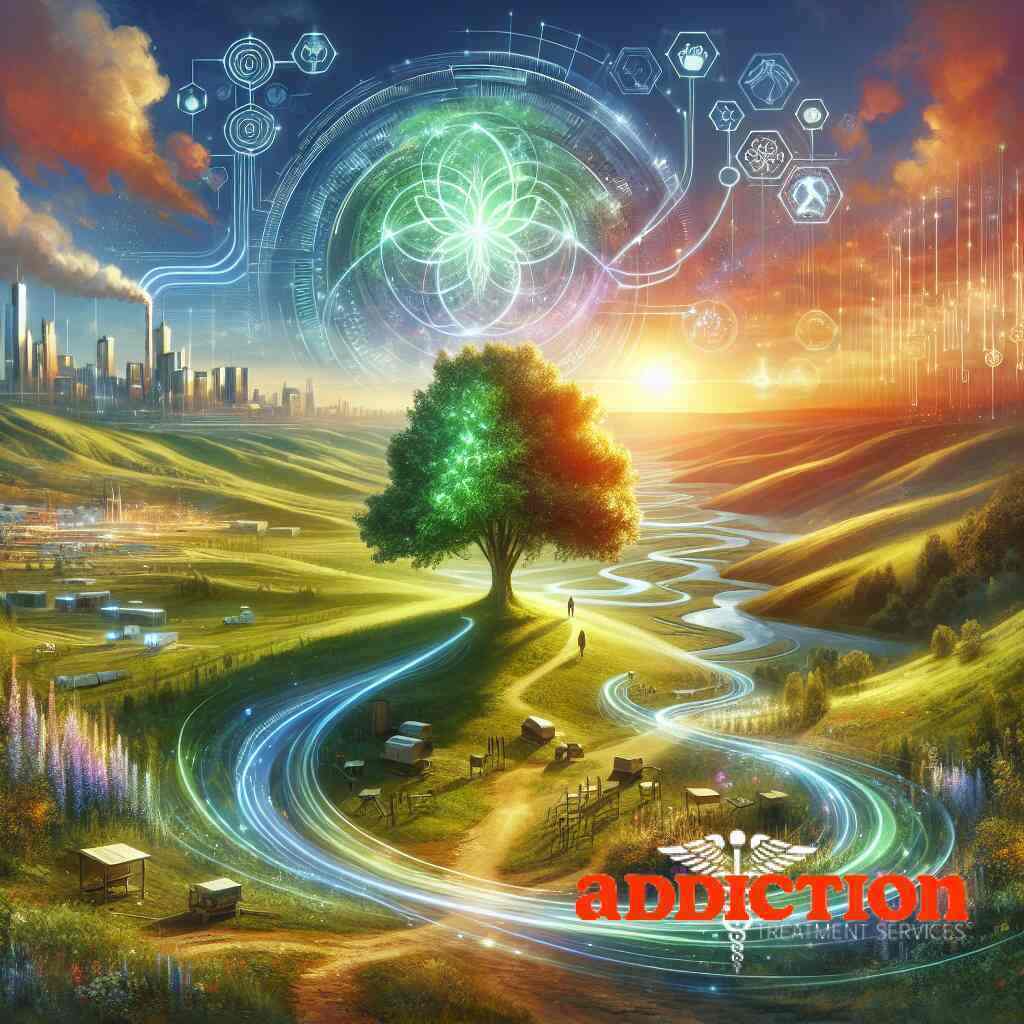 Posted On: 08/15/2023
Posted On: 08/15/2023Understanding Addiction
Addiction is a complex issue that affects millions of people worldwide. It is a medical disorder that leads to significant impairment and distress, often disrupting every aspect of an individual’s life, from relationships to professional commitments. However, recovery is possible, and the first step in this journey is understanding the nature of addiction.
Substance Use Disorders Explained
A substance use disorder (SUD) is a medical condition characterized by the compulsive use of substances despite the harmful consequences. SUDs are categorized based on the substance involved, such as alcohol, opioids, or stimulants.
Understanding the nature of SUD is integral to identifying suitable treatment options. These disorders are not a result of moral failing or lack of willpower but a complex interplay of genetic, environmental, and psychological factors.
Mental Health and Addiction
Mental health plays a crucial role in addiction. In many instances, mental health disorders and addiction can co-occur. People suffering from anxiety, depression, or post-traumatic stress disorder (PTSD) may turn to substances as a coping mechanism, paving the way for addiction.
Simultaneously, chronic substance abuse can trigger or exacerbate mental health disorders. Hence, it’s essential to address mental health issues when seeking addiction treatment. Comprehensive treatment approaches often incorporate mental health counseling as part of the recovery plan.
Many people living with addiction also experience chemical dependency. This condition occurs when the body has adapted to the constant presence of a substance, leading to withdrawal symptoms when usage ceases.
Chemical Dependency and Its Effects
Chemical dependency is a physical condition that occurs when your body becomes reliant on a specific substance. When the substance is removed, withdrawal symptoms occur. These symptoms can range from mild, such as nausea and restlessness, to severe, including seizures and hallucinations.
A crucial aspect of treating addiction involves addressing the chemical dependency. Detoxification services, whether for drug or alcohol detox, are an essential part of many treatment plans. They help manage withdrawal symptoms under medical supervision, paving the way for long-term recovery.
Navigating the Addiction Treatment Services Directory
Finding the right addiction treatment services can be a challenging task. The Addiction Treatment Services Directory at addictiontreatmentservices.com aims to simplify this process. With comprehensive listings of treatment options, the directory helps individuals find resources tailored to their unique needs.
How to Use the Treatment Center Locator
The Treatment Center Locator is a user-friendly tool designed to help you find suitable treatment options near you. Input your location, and the tool will provide a list of nearby services, ranging from outpatient counseling to residential treatment.
The locator also provides vital information about each center, such as treatment approaches, specialties, and contact information. It’s a valuable tool that simplifies the search for addiction treatment, making it easier to embark on the recovery journey.
Local vs. National Addiction Directories
There are both local and national addiction directories available. Local directories focus on a specific geographical area, providing an exhaustive list of services in that region. They can be particularly useful if you wish to find treatment near your home.
National directories, on the other hand, cover a broader range. They can be beneficial for those considering treatment options outside their local area. For example, some individuals may prefer treatment away from their usual environment to minimize triggers and focus solely on recovery.
Understanding Your Options: Drug and Alcohol Rehab Directories
When navigating the Addiction Treatment Services Directory, it’s essential to understand your options. The directory includes listings for both drug rehab and alcohol rehab centers.
While many centers offer treatment for various substance use disorders, some specialize in specific types of addiction. A drug rehab directory can provide options for individuals struggling with drug addiction,
from opioids to prescription medications, while an alcohol rehab directory is tailored towards alcohol addiction treatment.
Beyond the type of addiction, treatment centers can also vary in their approach. Some may emphasize evidence-based treatments, while others focus on holistic recovery methods. The directory provides a brief overview of each center’s approach, allowing you to choose a treatment that aligns with your values and preferences.
Treatment Modalities
Addiction treatment isn’t one-size-fits-all. It requires a comprehensive, individualized approach that addresses the unique needs of each person. One crucial factor to consider is the treatment modality.
Outpatient vs. Inpatient Rehabilitation
Outpatient treatment involves attending treatment sessions during the day and returning home at night. This modality allows you to maintain your daily routine and responsibilities while receiving treatment. In contrast, inpatient rehabilitation requires a residential stay at a treatment center. This immersive approach provides 24/7 support and removes potential environmental triggers, making it particularly suitable for severe addiction cases.
Inpatient and outpatient programs each have their benefits, and the best choice depends on individual circumstances. Factors to consider include the severity and duration of addiction, the presence of co-occurring disorders, and personal obligations such as work or family.
Residential Treatment and Sober Living
Residential treatment is a specific type of inpatient treatment where individuals reside at a therapeutic community, usually for a more extended period. This treatment modality emphasizes the community’s role in fostering behavioral change and supporting recovery.
Sober living homes are another option for those who have completed a residential treatment program. These are substance-free environments that provide support and structure for individuals transitioning back into everyday life. Living among others who are also in recovery can provide a sense of community and help maintain sobriety.
Virtual Rehab Services and Teletherapy
As technology advances, so do the options for addiction treatment. Virtual rehab services and teletherapy have emerged as viable treatment modalities, particularly in light of the COVID-19 pandemic. These services offer therapy sessions, group meetings, and even medication-assisted treatment through online platforms.
Virtual rehab services can provide increased accessibility for those who cannot attend in-person sessions due to geographical, physical, or logistical reasons. It’s important to note, however, that virtual services may not be suitable for everyone. They require reliable internet access, and some individuals may benefit more from in-person interactions.
Understanding Detoxification: Drug and Alcohol Detox Services
Detoxification is often the first step in the treatment process. It involves the removal of harmful substances from the body, and managing withdrawal symptoms that occur as a result. Drug and alcohol detox can be a challenging process, but medically supervised detox services can ensure safety and comfort during this period.
Specific Addiction Challenges
The challenges associated with addiction can vary widely based on the specific substance involved and the individual’s unique circumstances. It’s important to understand these specific challenges to find the most effective treatment.
Alcohol Addiction and Alcohol Withdrawal
Alcohol addiction, or alcoholism, is a chronic disease characterized by an inability to control or stop drinking despite its negative effects. Withdrawal from alcohol can be particularly dangerous and, in some cases, life-threatening. Therefore, medically supervised detox is often necessary for alcohol addiction treatment.
Opioid Addiction and Drug Withdrawal
Opioid addiction, involving substances like heroin or prescription painkillers, is a severe public health issue. Similar to alcohol, withdrawal from opioids can be a physically and emotionally challenging process. A comprehensive treatment plan for opioid addiction often includes medication-assisted treatment (MAT) to manage withdrawal symptoms and reduce cravings.
Substance Abuse in Special Populations: Teen, Elderly, LGBTQ+
Certain populations face unique challenges when it comes to substance abuse and recovery. For example, teenagers may struggle with peer pressure or academic stress, and elderly individuals might battle with isolation or chronic pain. Meanwhile, LGBTQ+ individuals often grapple with societal stigma and discrimination, which can contribute to substance abuse.
Therefore, addiction treatment services must be adaptable and considerate of these unique challenges. Many treatment centers offer specialized programs or therapy groups to address these specific needs.
Approaches to Treatment
The approach to treatment
can significantly impact its effectiveness. Here’s a look at different treatment methodologies.
Evidence-based Treatment and Addiction Science
Evidence-based treatment refers to modalities that have been scientifically proven to be effective. These can include cognitive-behavioral therapy (CBT), dialectical behavior therapy (DBT), and medication-assisted treatment (MAT). Addiction science plays a vital role in discovering and validating these treatment methods.
Holistic Recovery Methods
Holistic recovery methods focus on treating the whole person, not just the addiction. This approach might incorporate complementary therapies like yoga, mindfulness, nutrition counseling, and acupuncture, alongside traditional therapy. By addressing mental, physical, and spiritual health, holistic methods aim to foster overall well-being and sustainable recovery.
Personalized Recovery Plan and Recovery Roadmap
A personalized recovery plan outlines the specific treatment interventions and strategies tailored to the individual’s needs. These plans consider factors such as the type of substance used, the severity of the addiction, co-occurring mental health conditions, and personal circumstances.
A recovery roadmap, on the other hand, is a long-term plan that includes aftercare and relapse prevention strategies. It serves as a guide for maintaining sobriety and navigating life post-treatment.
MAT Programs and Medication-assisted Treatment
Medication-assisted treatment (MAT) combines behavioral therapy and medications to treat substance use disorders. It is particularly effective in treating opioid use disorders. MAT programs can help manage withdrawal symptoms, reduce cravings, and improve treatment outcomes.
The Role of Therapy in Addiction Recovery
Therapy is a cornerstone of addiction treatment. It can provide individuals with the tools and strategies necessary to achieve and maintain sobriety.
Individual Counseling and Group Therapy
Individual counseling provides a safe space for individuals to explore their thoughts, feelings, and behaviors related to addiction. The counselor can offer strategies to cope with cravings, teach skills to manage stress, and help address any underlying mental health conditions.
Group therapy, on the other hand, involves regular meetings with other individuals in recovery. It can foster a sense of community, provide peer support, and offer an opportunity to learn from others’ experiences.
Family Therapy and its Importance
Family can play a crucial role in an individual’s recovery. Family therapy can help mend relationships damaged by addiction and foster a supportive home environment. It also educates family members about addiction and teaches them how they can best support their loved one during recovery.
Behavioral Therapy and Trauma-informed Care
Behavioral therapy, such as cognitive-behavioral therapy (CBT) or dialectical behavior therapy (DBT), helps individuals identify and change unhealthy behaviors. These therapies can teach coping skills, stress management strategies, and help individuals deal with triggers.
Trauma-informed care recognizes the significant link between trauma and substance abuse. This approach aims to address underlying trauma as a part of addiction treatment, helping to promote healing and reduce the risk of relapse.
Support Systems and Community
Having a solid support system can make a world of difference in recovery. It’s important to consider how various types of support can aid in maintaining sobriety.
Family Support and Peer Support in Recovery
Family support in recovery can provide emotional encouragement, help maintain a substance-free environment, and hold the individual accountable. Peer support, through recovery support groups or 12-step programs, can also be invaluable. Hearing others’ stories and experiences can provide inspiration, reduce feelings of isolation, and foster hope.
12-step Programs: Narcotics Anonymous and Alcoholics Anonymous
12-step programs like Narcotics Anonymous (NA) and Alcoholics Anonymous (AA) are well-known support groups that offer a structured approach to recovery. These programs focus on admitting powerlessness over addiction, making amends for past wrongs, and seeking strength from a higher power. They provide
a supportive community for individuals at all stages of recovery.
Recovery Support Groups and Recovery Community
Aside from 12-step programs, there are various other recovery support groups available. Some may focus on specific substances, demographics, or take a certain philosophical approach. Finding the right fit can provide a sense of belonging and greatly aid recovery.
Planning for the Long Term
Achieving sobriety is just the first step; maintaining it requires long-term planning and ongoing support.
Aftercare Planning and Relapse Prevention
Aftercare planning is crucial to prevent relapse. This can include ongoing therapy, support groups, sober living homes, or ongoing medication management. Relapse prevention strategies often involve identifying triggers, developing coping strategies, and creating a plan for what to do if cravings occur.
Sober Living and Long-term Recovery
Sober living homes provide a transition between intensive treatment and returning to everyday life. They offer a supportive, substance-free environment where individuals can practice newly learned recovery skills.
Long-term recovery involves ongoing effort and support. It often involves making lifestyle changes, such as adopting healthier habits, building a supportive social network, and potentially finding new hobbies or activities.
Short-term Rehab vs. Long-term Treatment Options
Short-term rehab programs typically last 28 to 30 days, while long-term treatment can last 90 days or more. Although short-term rehab can be effective, research suggests that longer treatment durations can lead to better outcomes. However, the best choice will depend on the individual’s needs, circumstances, and resources.
Educational Resources and Help
Education plays a crucial role in recovery. Understanding the nature of addiction, its impacts, and how to manage it can empower individuals on their recovery journey.
Addiction Education and Substance Abuse Prevention
Addiction education involves learning about the effects of substances on the brain and body, the factors contributing to addiction, and the impact on mental and physical health. Substance abuse prevention education can also provide information on recognizing the signs of addiction and steps to take to prevent it from developing.
Self-help Resources and Recovery Tools
Self-help resources can include books, online forums, mobile apps, and more. These resources can provide additional support and advice to supplement formal treatment. Recovery tools can range from mindfulness apps to help manage stress, to online forums for peer support, to journals for tracking progress.
Intervention Services, Crisis Intervention, and Addiction Helplines
Intervention services can help loved ones address the issue of addiction with the individual, often guiding the person towards accepting help. Crisis intervention services and addiction helplines provide immediate support in a crisis situation, offering guidance, resources, and immediate help when needed.
Assessing Recovery Progress
Monitoring progress during recovery can help ensure the treatment plan is effective and adjust as necessary.
Addiction Assessments and Substance Abuse Statistics
Addiction assessments can help gauge the severity of addiction, identify any co-occurring disorders, and guide treatment planning. Regular assessments throughout recovery can help track progress and adjust the treatment plan as needed. Understanding substance abuse statistics can also provide context and help individuals realize they’re not alone in their struggle.
Recovery Success Rates and Relapse Management
Recovery success rates can provide hope and motivation. However, it’s essential to remember that everyone’s recovery journey is unique. Relapses can happen but do not signify failure. They should be viewed as a chance to learn and adjust the recovery plan.
Harm Reduction Strategies in Addiction Treatment
Harm reduction strategies aim to minimize the negative consequences associated with substance abuse. This could include safer use practices, managed use, or abstinence. Incorporating harm reduction strategies into the recovery process can help prevent further harm and support overall health and well-being.
Recovery is a journey, and the right support can make all the difference. Utilizing an Addiction Treatment Services Directory can help connect individuals with the resources they need to start their recovery journey.


